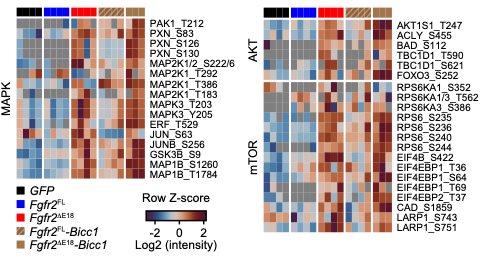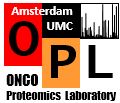
Phosphoproteomics contribution published in Nature revealing that truncated FGFR2 leads to hyperactivity and is a clinically actionable oncogene
- Post by: OPL
- August 14, 2022
- Comments off
Genetic alterations in the FGFR2 gene occur in various cancer types and represent a promising target for therapies. However, clinical responses to available therapies remained variable and unpredictable, making it difficult to select patients who would benefit from these types of treatments.
An international team of researchers led by Jos Jonkers, group leader at the Netherlands Cancer Institute, including members of the Amsterdam UMC OncoProteomics Laboratory has now elucidated the mechanism behind this variation in treatment response.
This research – published Aug 11 in Nature – offers new opportunities to improve diagnostics and targeted therapy for many cancer patients. The results highlight the importance of studying the functional consequences of genetic changes in tumors by phosphoproteomics and functional in vitro and in vivo experiments.
For more information see:
Link to article in Nature: https://pubmed.ncbi.nlm.nih.gov/35948633/
NKI press release:
https://www.nki.nl/news-events/news/unraveling-of-genetic-mechanism-behind-tumor-formation-may-improve-targeted-treatment-for-cancer-patients/
